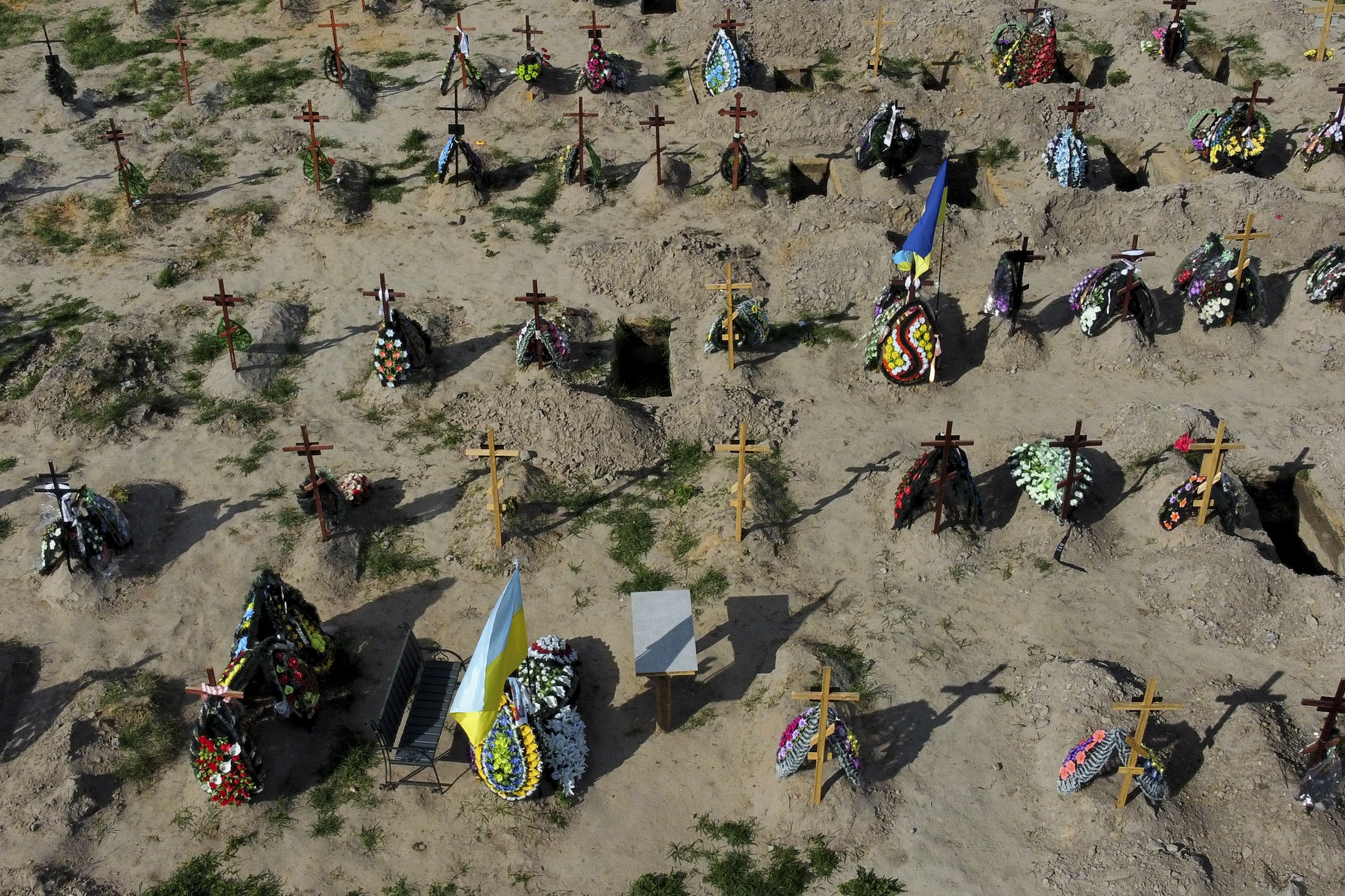
Here are the key events so far on Wednesday, May 25.
Get the latest updates here.
Fighting
- At least 22,000 residents were killed during three months of war in Mariupol, according to Petro Andriushchenko – a mayoral adviser.
- Ukrainian authorities said 200 bodies have been found in the rubble of an apartment building in Mariupol.
- Russian forces launched four cruise missiles at Zaporizhzhia early Wednesday morning, with one shot down by Ukraine’s air defences, the region’s military administration reported.
- Russian forces fired three missiles at the central city of Kryvyi Rih, causing”serious damage”, the governor of the Dnipropetrovsk regional military administration said.
- At least 14 civilians were killed and 15 others injured in Russian attacks in the eastern regions of Luhansk and Donetsk, Ukraine said.
- The situation is getting “worse with every hour” in Luhansk as Russia continues its attacks, with six people killed in shelling in Severodonetsk on Tuesday, the Luhansk regional governor said.
- Ukraine’s army said Russian forces are regularly shelling areas in the now-occupied Kherson region while Russia is blaming Ukraine for the raids.
- Russian forces are likely attempting to make smaller encirclements and have abandoned plans to secure a single large encirclement of Ukrainian forces in eastern Ukraine, the Institute for the Study of War said.
- The Ukrainian military said Russia fired at Ukrainian border guards in the northeastern Sumy region in the latest of a series of alleged cross-border attacks over the past few weeks.
Diplomacy
- Turkish officials will meet with Swedish and Finnish delegations in Ankara on Wednesday to discuss Stockholm and Helsinki’s applications to become members of NATO, the Turkish foreign ministry confirmed.
- European Commission chief Ursula von der Leyen called for talks with Russia on Ukraine’s wheat exports as Russia continues blocking ports.
- The US criticised a joint military exercise between Russia and China, saying it demonstrated that Beijing is still committed to its partnership with Moscow despite the invasion of Ukraine.
- Hungary has imposed a state of emergency over Russia being “a constant threat to Hungary”, Prime Minister Victor Orban said
- The only way to prevent war in Ukraine from escalating is to “help Ukraine win”, Ukrainian presidential office head Andrii Yermak said at Davos.
- Ukraine’s first lady Olena Zelenska urged the world to keep speaking about the war in Ukraine, saying “do not get used to the fact that, somewhere in Europe, children are bombed”.
- Biden’s administration is travelling to India to discuss US sanctions on Russia and dissuade India from buying more Russian oil, the Treasury Department said.
Economy
- The UK’s defence ministry expressed concerns about the risk of price rises for staples due to the blockade of Ukraine’s Black Sea ports.
- Ukraine’s foreign minister Dmytro Kuleba said foreign companies still operating in Russia have “the last chance to save not only your reputation but your property”, noting that Russia’s new law allows the government to appoint new management of foreign companies.
- Ukraine’s “post-war reconstruction and recovery” to be key topics at the Ukraine Recovery Conference in Switzerland on July 4-5, Kuleba said – 40 states and 18 international organisations have been invited.
- US banks and individuals are barred from accepting bond payments from Russia’s government after 12:01am EST (04:01 GMT) on Wednesday, as a license that has so far allowed the cash to flow ended, the Treasury said.
- Hungary’s PM Orban released a letter saying “absence of a consensus would be counterproductive” in discussions of the EU’s embargo on Russian oil ahead of next week’s summit, suggesting Hungary is “unlikely” to drop its opposition.
Refugees
- A Ukrainian refugee camp in Mexico will soon close and the country is discouraging Ukrainians from travelling to Mexico in hopes of reaching the US, Mexican authorities said.
- Roma refugees from Ukraine face segregation in Moldova as authorities are deliberately housing most of them separately from others fleeing the war, in a manner that constitutes unequal and discriminatory treatment, Human Rights Watch found.







